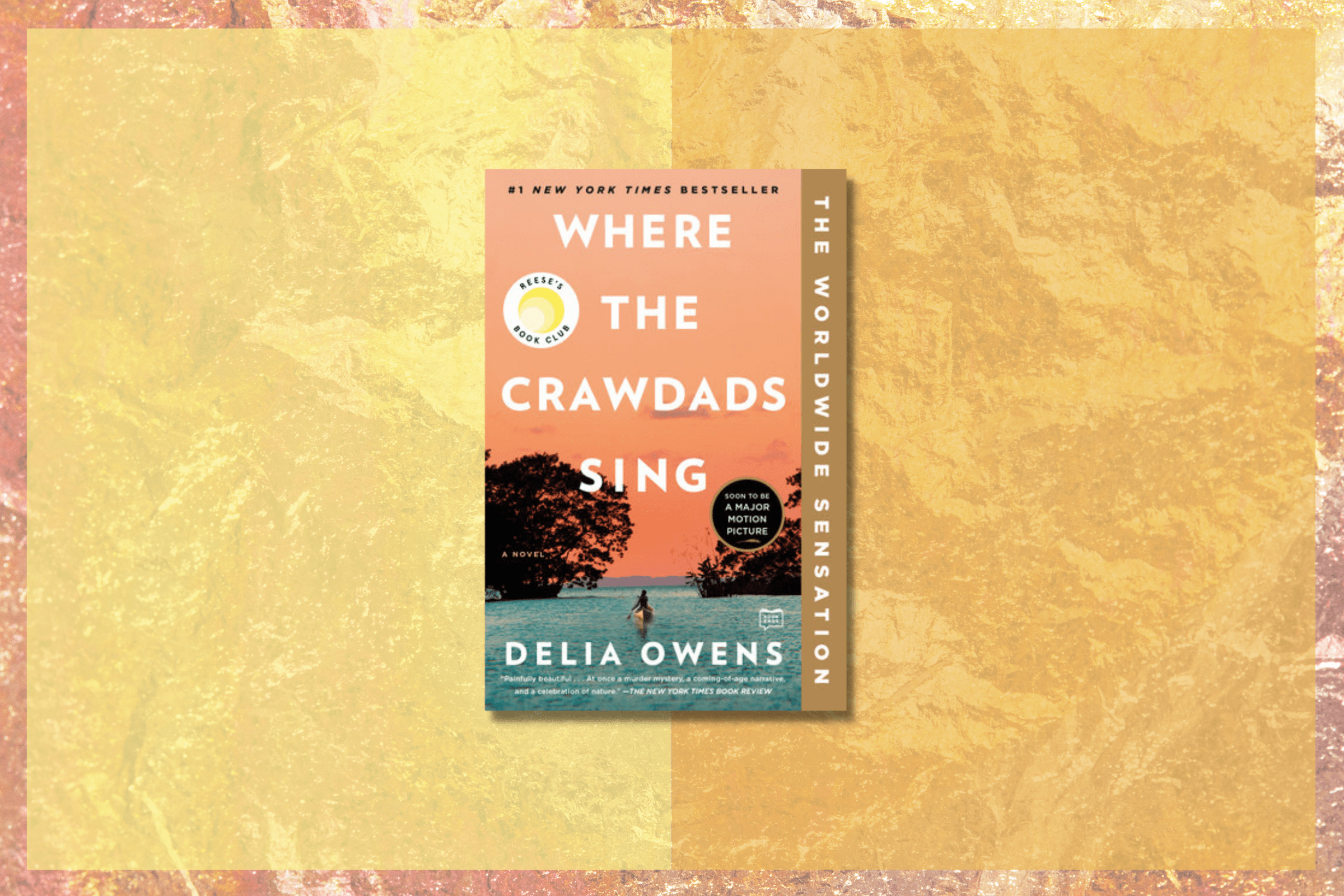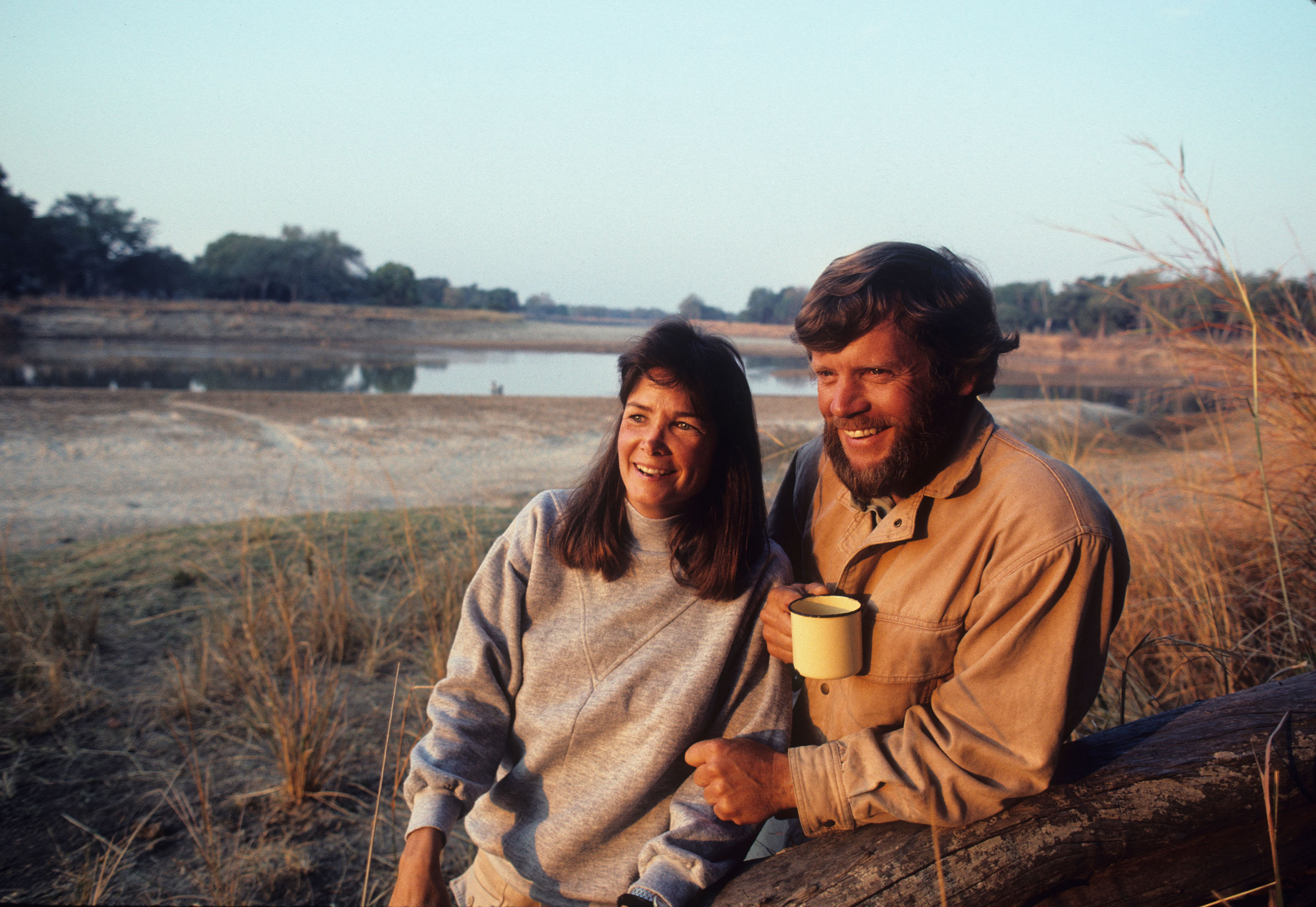It had all the makings of a publishing Cinderella story. A first-time novelist, making her fiction debut at age 70, wrote a coming-of-age thriller that unexpectedly became a best-selling juggernaut, was selected by Reese Witherspoon for her book club, and was snapped up to be made into a feature film. After Delia Owens published Where the Crawdads Sing in the summer of 2018, appetite only grew for the story of Kya, a girl who raises herself in a North Carolina marsh after being abandoned by her family, only to find herself accused of a grisly murder as a young woman. The movie, produced by Witherspoon with Owens’ involvement and directed by Olivia Newman, premiered in theaters July 15 and is now available to stream on Netflix. Witherspoon told Vanity Fair in March that the novel “is a love letter to growing up in the South.”
But Owens’ runaway success belies an ugly history—one that has not only cast a shadow on her life in the literary spotlight, but also predated it. As was thoroughly documented in Jeffrey Goldberg’s nearly 20,000-word exposé for the New Yorker in 2010, and then detailed again by Laura Miller for Slate in 2019, Owens’ own past includes an unsolved murder and subsequent scrutiny—just like Kya’s present.
In 1996, ABC debuted a special that centered on Owens and her husband at the time, Mark Owens, and a tragic incident in Zambia, where they were working as conservationists. The special, “Deadly Game: The Mark and Delia Owens Story,” captured escalating tensions between the couple and poachers. In the episode, an alleged poacher was shot and killed on-camera. The cameraman who filmed the incident told Goldberg that he believed Owens’ stepson Christopher Owens committed the murder. The author told Goldberg in 2010 that her stepson was not present when the man was shot. (A representative for the author did not respond to a request for comment; a representative for Sony, the film’s distributor, canceled scheduled interviews with Owens, Witherspoon, Newton, and star Daisy Edgar-Jones after an interview with screenwriter Lucy Alibar in which TIME asked about Owens and the controversy surrounding the Zambia murder. Alibar said she was not familiar with the controversy.)
In Miller’s Slate article and a new Atlantic piece by Goldberg, published this week, both journalists drew comparisons between the author’s personal story and the story told in the book. “Having her heroine stand accused of murder echoes the Owens’ Zambian experience and the subsequent ordeal of becoming the subject of a 18,000-word exposé in a prominent magazine,” Miller wrote.
For his July 11 piece, Goldberg spoke to Zambia’s director of public prosecutions, Lillian Shawa-Siyuni, who confirmed that Mark, Delia, and Christopher Owens are still wanted for questioning. “There is no statute of limitations on murder in Zambia,” Siyuni told Goldberg. “They are all wanted for questioning in this case, including Delia Owens.”
Here’s what to know about Owens, her career before her hit novel, and the controversy that surrounds Where the Crawdads Sing.
Delia Owens’ career before Crawdads
Like her protagonist Kya, Owens has long been a lover of nature and wildlife. She studied zoology at the University of Georgia and holds a doctorate in Animal Behavior from the University of California, Davis. In 1984, she published a nonfiction book with Mark Owens called Cry of the Kalahari. The book recounted their experiences living in the Kalahari Desert, where the couple moved in 1974 to study brown hyenas and lions for seven years. The book won the John Burroughs Medal for Best Natural History Book, and the Owenses were applauded for their reflections on what it was like to live among animals in isolation.
The duo went on to write two more books about their time studying wilderness in Africa: The Eye of the Elephant, published in 1992, and Secrets of the Savanna, published in 2006. During their time abroad, the couple became involved in anti-poaching work and, as a result, developed the North Luangwa Conservation Project. The aim of the project, according to the website for the couple’s foundation, the Owens Foundation for Wildlife Conservation, was to “rehabilitate and conserve the 2,400 square-mile North Luangwa National Park of Zambia” in response to the soaring number of elephants and rhinoceroses that were being killed by poachers in the area. The couple returned to the U.S. in 1996, and later turned their attention toward domestic grizzly bear conservation efforts.
A 2019 newsletter for the Owens foundation noted that Delia Owens would be taking a “step back” from the organization.
Crawdads’ unexpected success story
In the summer of 2018, Delia Owens released her debut novel Where the Crawdads Sing. Publisher Putnam originally printed a modest 28,000 copies; no one anticipated the runaway hit the novel would become, aided by its selection as the September 2018 Reese’s Book Club pick.
Crawdads became a fixture in book clubs across the country, and the New York Times reported that by the end of 2019, the novel had sold more print copies than any other adult title that year, beating out new releases by Margaret Atwood and Stephen King. Peter Hildick-Smith, the president of book audience research firm Codex Group, told the Times that the novel had “defied the new laws of gravity.”

In its first year, Where the Crawdads Sing sold more than 1.1 million copies, according to Publisher’s Weekly. Now, roughly four years after its release, that number has exceeded 12 million. Its momentum has not slowed. Last December, the book landed on the New York Public Library’s Top 10 Checkouts of 2021. And on TikTok, the popularity of #BookTok content is driving a new audience to the novel—the hashtag #wherethecrawdadssing has garnered over 29 million views on the app. Today, the book still tops the New York Times best seller list, and it has been on the list for more than 167 weeks.
The book is mired in controversy
In 2019, just as Crawdads was becoming a true sensation, journalist Laura Miller revisited the controversial aspects of Owens’ past for Slate in a story that went viral. In the piece, Miller offered a comprehensive look at Owens and her former husband’s activities in Zambia, where they worked for several years. “What most of Crawdads’ fans don’t know,” Miller wrote, “is that Delia and Mark Owens have been advised never to return to one of the African nations where they once lived and worked, Zambia, because they are wanted for questioning in a murder that took place there decades ago.” Miller referenced Goldberg’s 2010 piece, where he wrote that “the American Embassy warned the Owenses not to enter Zambia until the controversy was resolved.”
The tragedy took place in 1995 and was captured by an ABC film crew that was following the Owenses for a documentary originally intended to be about the couple’s conservationist efforts. The footage then became the Turning Point special “Deadly Game: The Mark and Delia Owens Story.” In the special, an unidentified man—referred to in the episodes as a “suspected poacher”—is shot at by a person whose face is blurred. More shots are fired off screen, and his body goes still.
After the special aired in 1996, the Zambian government opened a police investigation. The body was never found. A cameraman claimed that the author’s stepson, Christopher Owens, was the one who fired the gun. Delia Owens has publicly denied this, saying that Christopher was not present at the scene. “People say Chris did this because they got confused, because the cameraman was named Chris, too,” Owens told Goldberg for his 2010 New Yorker piece.
There have been no charges against the Owenses. In his most recent Atlantic piece, Goldberg wrote that he spoke to Zambian police officials who were “keen to interrogate Mark and Christopher Owens, but also believe that Delia Owens should be interrogated as a possible witness, co-conspirator, and accessory to felony crimes.”

In his 2010 piece, Goldberg also covered the complicated relationships the Owenses had with local scouts and poachers, and noted that the couple’s written works “on occasion convey archaic ideas about Africans.” Miller drew a parallel between that observation and how Owens depicted Black characters in Crawdads, referencing a scene in which Jumpin’, one of the few characters who shows Kya any kindness, wants to notify the police after he sees that she has been assaulted. “The idea that any Black man living in the rural South during the early ’60s would seriously consider reporting to local law enforcement the attempted rape of a white woman by the son of a prominent white family is ludicrous,” Miller wrote.
Owens has distanced herself from the Zambia murder, and rarely discusses it with the press. In 2019, she told the New York Times that she was not involved in the shooting. “It’s painful to have that come up, but it’s what Kya had to deal with, name calling,” she said.
Sign up for More to the Story, TIME’s weekly entertainment newsletter, to get the context you need for the pop culture you love.
Backlash to the film
The creative team behind the Crawdads movie has not publicly acknowledged the controversy, which again became a hot topic when Taylor Swift announced in March that she wrote a song for the film called “Carolina.” The singer wrote in an Instagram post that she was a fan of the book and “wanted to create something haunting and ethereal to match this mesmerizing story.”
Buzzfeed News reported that Swift’s involvement in the movie led several social media users to reflect on the artist’s history of white feminism, with one user creating a viral TikTok video that started a larger conversation about Swift, Reese Witherspoon, and their involvement with the film.
Read More: The 46 Most Anticipated Movies of Summer 2022
As the film is set to release, critics are addressing the controversy head on. “That Owens—already well-known before the novel—has managed to build an even more successful career despite details of her past resurfacing is bewildering,” Lovia Gyarkye wrote in her review for the Hollywood Reporter. “For many people, Where the Crawdads Sing struck an emotional chord, but it’s worth considering what one has to ignore in order to get there.” In Indiewire, David Ehrlich opined that “we may never know the full truth behind Delia Owens’ checkered past as a conservationist—which almost certainly seem [sic] to include a militant, white savior-minded approach to policing Zambian wildlife preserves, and may also extend to being a ‘co-conspirator and accessory’ to murder.” And for Vanity Fair, Richard Lawson wrote, “Where the Crawdads Sing takes on some sinister dimensions—it would be easier to separate the film from its source were the film a full-bodied artistic expression all its own.”
More Must-Reads from TIME
- Caitlin Clark Is TIME's 2024 Athlete of the Year
- Where Trump 2.0 Will Differ From 1.0
- Is Intermittent Fasting Good or Bad for You?
- The 100 Must-Read Books of 2024
- Column: If Optimism Feels Ridiculous Now, Try Hope
- The Future of Climate Action Is Trade Policy
- FX’s Say Nothing Is the Must-Watch Political Thriller of 2024
- Merle Bombardieri Is Helping People Make the Baby Decision
Write to Annabel Gutterman at annabel.gutterman@time.com